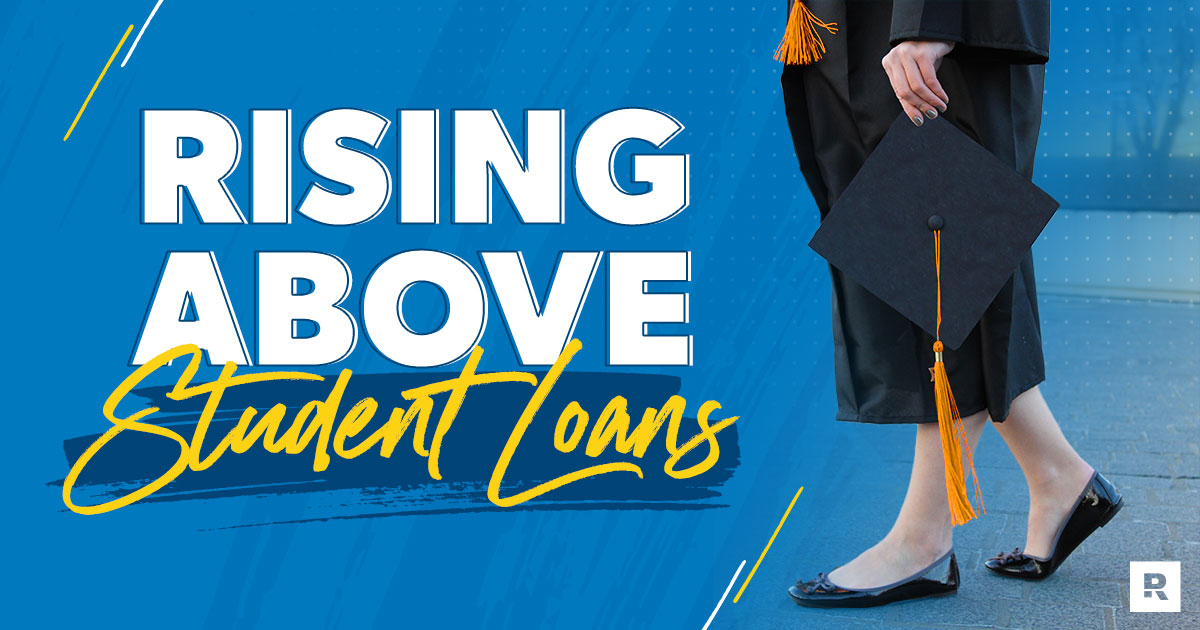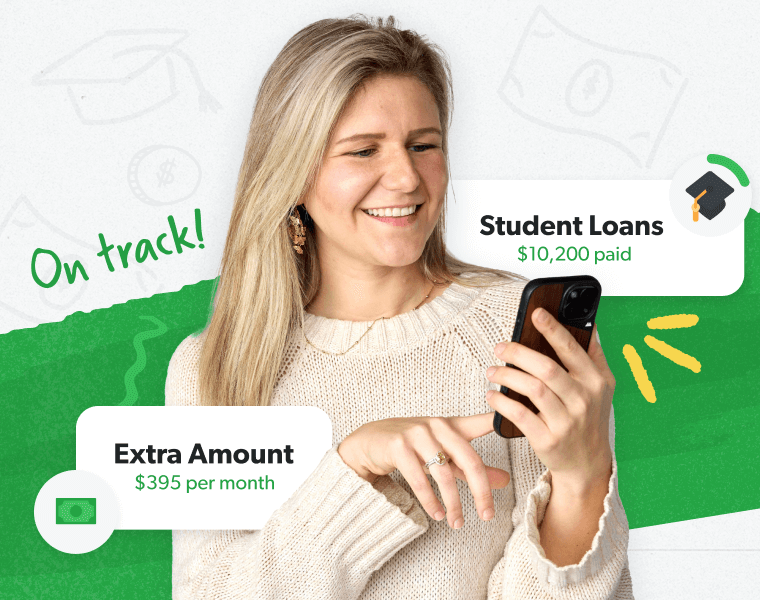There’s an uncomfortable situation we need to look at in this country: the student loan crisis. This debt disaster has become way too serious to ignore—and it’s affecting the lives of millions. Right now, the total amount of student loan debt in the U.S. is over $1.6 trillion.1 That’s mind boggling, folks.
Let’s review the simple (but shocking) facts around the student debt crisis. Then, we can understand this problem and work toward getting this debt out of our lives for good.
The Stats on the Student Loan Crisis
Here’s a snapshot to help you see the bigger picture of the student loan crisis:
- As of 2024, borrowers owe more than $1.6 trillion just in student loans!2
- Total student loan debt has grown by over $60 billion since 2020.3
- There are currently about 43 million student loan borrowers in the U.S.4
- 59% of 2023 college graduates used student loans.5
- The average amount of student loan debt per borrower is about $38,000.6
The History of Student Loan Debt
Believe it or not, student loans haven’t been around forever. They began in 1957 mostly to encourage more students (especially those in the fields of science, math and foreign languages) to attend college—all so Americans could have a chance to beat the Russians during the “space race.” And this strategy worked, with college attendance rising significantly during the 60s.7
Pay off debt fast and save more money with Financial Peace University.
And can you guess what else shot up? That’s right, student loan debt.
You might blame student loans on the huge rise in tuition costs (which are almost 20 times higher than 50 years ago), or the surge in inflation over time, or all the pressure from society to get a college degree.8 But whatever the cause, there’s one thing we can all agree on: Student loans have reached crisis levels. And it doesn’t look like they’re going to slow down anytime soon.
Ditch student loans faster with EveryDollar.
Time to take charge of your money! Let’s make a game plan in a few simple steps.
Student Loan Debt Totals by Age
It’s easy to think student loan debt is only a problem for young people and recent graduates, but that’s definitely not true. In fact, some people are still paying off their student loans when their own kids head off to college.
If you find that hard to believe, here’s a breakdown of the current total student loan debt Americans carry, broken down by age range:
|
Age Range |
Total Student Loan Debt |
|
18–29 |
$320 billion |
|
30–39 |
$520 billion |
|
40–49 |
$360 billion |
|
50–59 |
$240 billion |
|
60–69 |
$120 billion9 |
The Financial Impact of Student Loans
The truth is, student loans are meant to make college more accessible for people, but they actually create a lifetime of financial stress. Let’s crunch some numbers to see how.
First, here’s a look at the typical student loan balance, interest rate and monthly payment:
|
Average Student Loan Debt per Borrower |
$37,79710 |
|
Current Federal Student Loan Interest Rate |
6.53%11 |
|
Typical Student Loan Monthly Payment |
$50012 |
So, how long would someone strapped down by the average numbers be stuck in the mud? Well, if you plug them into our Student Loan Payoff Calculator, you’ll see that a borrower with $37,797 of debt at a 6.53% interest rate and a $500 monthly payment will be paying down that loan for nine years.
But wait, there’s more . . . You won’t just be paying the student loan amount. At the end of those nine years, you’ll have paid an extra $11,000 in interest alone. Yep, that $37,797 loan will actually cost you close to $49,000 when it’s all said and done.
The Hidden Cost of Student Loan Debt
Here’s what most people don’t realize before taking out student loans: Having a pile of debt makes it much harder to afford major life purchases. And since the average borrower takes 20 years to pay off student loans, that burden can last for quite a while.13
Just look at these results from a 2022 survey of over 5,000 adults with student loans. Many of them delay major life choices to pay off their student debt:
- 42% delay paying off other loans
- 14% delay getting married
- 38% delay saving for retirement
- 33% delay buying a home
- 35% delay travel
- 16% delay having a baby14
Why Do People Rely on Student Loans?
Many Americans have the mindset that a college degree is the only ticket to a well-paying job, happiness and overall success in life. So it’s no wonder that high school students are nervous, worrying they won’t get a decent job if they don’t have a degree. And it’s easy to believe the only way to afford their college degree is to take out a loan.
But none of this is true. Plenty of people who never went to college have “made it” with hard work. Lots of opportunities are out there to make good money without a college degree.
Now, college can offer you an amazing education, and some fields like law and medicine require a degree. But it may not be your only ticket to success.
And keep in mind that a degree is a degree, no matter where it’s from—and it’s 100% possible to get a degree without loans by picking a more affordable school. If that means you go to a community college, good for you! Ten years from now, it won’t matter, and you’ll be ahead of the game without any debt.
How to Get Yourself Out of Student Loan Debt
If you’re in the middle of this student loan crisis—carrying debt and slowly digging your way out with monthly payments—there is hope! You don’t have to stay in this cycle forever.
You can get out—and you don’t have to rely on things like debt consolidation or student loan refinancing. Follow these tips to get started:
- Pay more than the minimum payment. You can’t make any real progress on your debt by only making minimum payments—so go above and beyond.
- Get on a budget. A budget lets you plan how you’ll spend every dollar before the month begins. It keeps you organized and, more importantly, helps you crush your money goals much faster than flying by the seat of your pants.
- Cut back your spending. It’s a simple formula: The less you spend, the more you have left over to put toward your debt.
- Increase your income. Working an extra job, doing freelance work, or simply selling old stuff that’s sitting around your garage will give you extra cash to throw at your debt. Take our free Side Hustle Quiz to see which options are a good fit for you.
I know the student loan crisis seems overwhelming to even think about. That $1.6 trillion total is serious business. But the looming national debt isn’t something you have to take down yourself. Just focus on how you can knock out your debt—and teach your kids to steer clear of student loans completely.
Don’t let the country’s student debt crisis create a personal crisis for you. Make the choice to get out of debt and take the steps to move forward with your life. You can do this!





